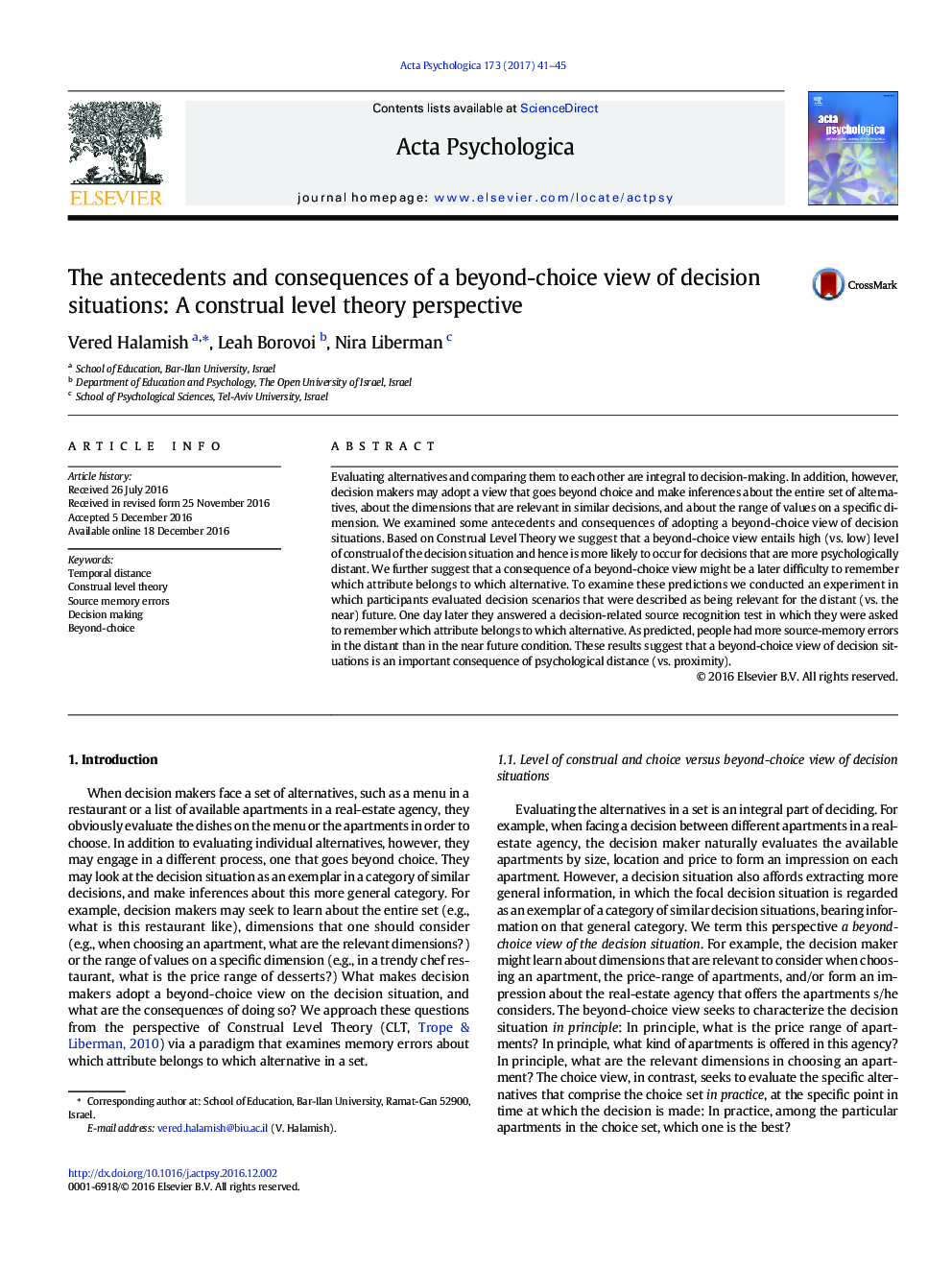| Article ID | Journal | Published Year | Pages | File Type |
|---|---|---|---|---|
| 5040317 | Acta Psychologica | 2017 | 5 Pages |
â¢In a beyond-choice perspective people attend to dimensions, sets of alternatives.â¢A beyond-choice perspective does not seek to distinguish between alternatives.â¢Psychological distance should promote a beyond-choice perspective.â¢Temporal distance from a decision impaired distinction between alternatives.â¢The effect of time on memory may be extended to mental, prospective time.
Evaluating alternatives and comparing them to each other are integral to decision-making. In addition, however, decision makers may adopt a view that goes beyond choice and make inferences about the entire set of alternatives, about the dimensions that are relevant in similar decisions, and about the range of values on a specific dimension. We examined some antecedents and consequences of adopting a beyond-choice view of decision situations. Based on Construal Level Theory we suggest that a beyond-choice view entails high (vs. low) level of construal of the decision situation and hence is more likely to occur for decisions that are more psychologically distant. We further suggest that a consequence of a beyond-choice view might be a later difficulty to remember which attribute belongs to which alternative. To examine these predictions we conducted an experiment in which participants evaluated decision scenarios that were described as being relevant for the distant (vs. the near) future. One day later they answered a decision-related source recognition test in which they were asked to remember which attribute belongs to which alternative. As predicted, people had more source-memory errors in the distant than in the near future condition. These results suggest that a beyond-choice view of decision situations is an important consequence of psychological distance (vs. proximity).
